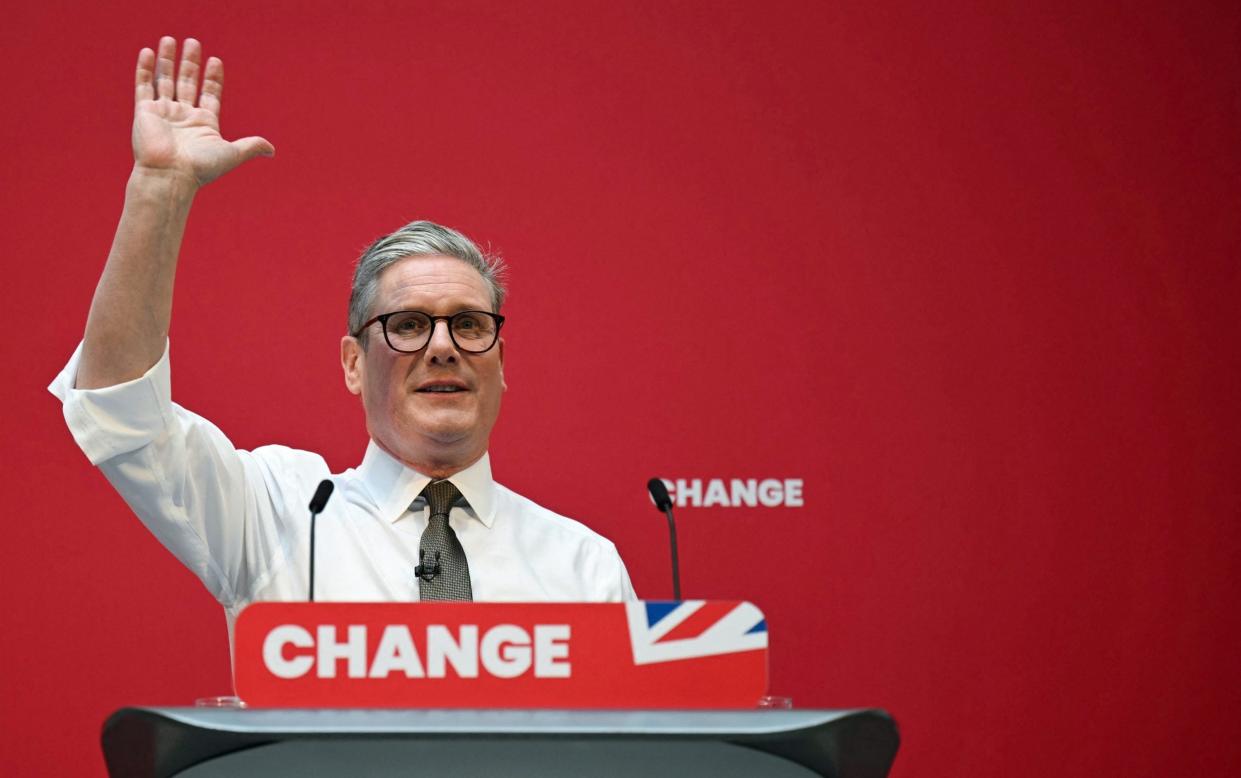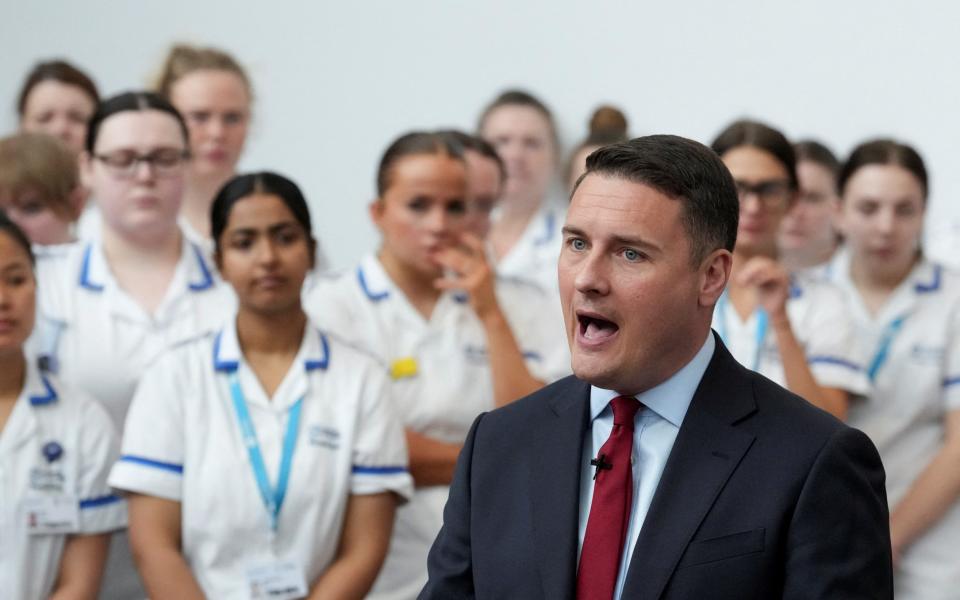Labour passed on its chance to secure a mandate for NHS reform

What exactly are Labour’s plans for the National Health Service?
I appreciate this question could be applied to almost every policy area, as this week’s publication of the party’s manifesto was intentionally free of “surprises” – including detail. But while Labour has played a strategically vague game in recent months – in order to keep their options as flexible as possible – the NHS had been one of the few areas where the party had been far bolder about its plans for pragmatic reform.
Yet while so much of the manifesto mirrors Labour’s narrative leading up to the campaign, its chapter on the NHS does not. The 139-page document is lacking any serious plan for reform or detail about how the party will integrate more private and independent sector care into the system.
Something seemed off from the start of the campaign, when Keir Starmer, in the first TV debate, said he would never use private healthcare to get a friend or family member faster access to surgery. It was an odd answer for several reasons, including the robustness of the response, suggesting there was no person, ailment or length of delay that could change his mind.
It also seemed to jar with what his shadow health secretary Wes Streeting wrote in The Telegraph just a week prior, promising to “go further than New Labour ever did” to enable the “NHS to form partnerships with the private sector that goes beyond just hospital”.
But the most curious part of the answer was Starmer’s choice of language. Of all the reasons he could have given for ruling out private or independent care, he went for the quasi-religious one: “I use the NHS… it runs through my DNA.”

What would Streeting make of this reasoning? It is by no means a new line from Labour – or any other party for that matter.
Around this time last year politicians piled into Westminster Abbey for the NHS’s 75th “birthday”, giving worship to the state institution. But it is also what Labour has been trying to pivot away from.
Streeting is often the first to insist that the NHS isn’t something to envy or revere, especially when outcomes for patients rank so poorly compared to neighbouring countries. I suspected another strategic move: no need to spook viewers at home with a soundbite on NHS reform, which isn’t exactly a popular topic at the best of times. Save the details for the manifesto, where plans can be fully explained.
We have that manifesto now, and not only are the details about NHS reform omitted, there is no suggestion whatsoever of a serious overhaul.
The document states that more investment into the NHS must go “hand in hand with fundamental reform”. Yet what follows seems to be a series of tweaks and slogans that mean nothing on their own.
The party describes “the ‘winter crisis’ cycle” as some Tory import, as if the NHS didn’t experience winter breaking points throughout the noughties. It’s an almost guaranteed consequence of a system that deliberately operates close to full capacity, regardless of who is in charge.
The “root reform” it claims is necessary is not really explained. Instead the document lists out the kinds of promises we hear from all the major parties when they don’t want to fully acknowledge the scale of the UK’s health system problems.
Plans to “harness the power of technologies like AI to transform the speed and accuracy of diagnostic services” is how Labour says it will pivot from emergency to preventative care. It’s the healthcare equivalent of the magic money tree for the economy: a tool to save the day without tackling any of the underlying problems in the system.
Some 40,000 additional appointments a week are promised, which supposedly will appear thanks to voluntary cooperation from doctors and nurses – who have been very clear one of their main problems is exhaustion from too few staff and too many hours worked.
The party promises thousands more medical staff – while also planning to reduce immigration. It pledges to turn the “National Health Service” into a “Neighbourhood Health Service” – a nice slogan with no substance behind it.
But perhaps the biggest indicator Labour is retreating is their stated ambition for waiting times. Their main priority now is to “grip waiting lists” – something that is likely to happen regardless of party, as the Institute for Fiscal Studies predicts waiting lists will start coming down “consistently but slowly” over the rest of the year.
But the party’s ambition is to return to the current “standards” where “patients should expect to wait no longer than 18 weeks from referral for consultant-led treatment of non-urgent health conditions”.
Is this really the plan, after so much brave talk of underperformance and reform? Patients, often in pain, still waiting months for necessary treatment?
Where did the ambition go? Yes, transparency has its risks. Theresa May learned this the hardest way in 2017, when plans to address gaps in social care funding quickly got dubbed the “dementia tax”.
The truth hurts, and brutal honesty about the NHS would have turned off a few voters. But it would have also enabled Labour to enter No 10 with a clear mandate to start reform on day one: surely a worthwhile trade-off for a party that is not only polling spectacularly, but presumably wants to set itself up for success if it finds itself in power next month.
The weekend before polling day, junior doctors in the British Medical Association will be staging their pre-election strike. It reflects their feelings about the Government – but it should also be viewed as a warning shot to Labour.
Streeting has already found himself up against the BMA in the past, and has stood his ground. But that battle only becomes harder if he finds himself in charge. Labour could have been on the front foot in the upcoming debates and stand-offs that will inevitably take place if serious reform is tabled, were it able to say that their plans were vocalised, and voted for, in the election.
Instead they watered it all down, to further secure a very secure-looking election. A strategic election tactic that may make it much harder to govern.


 Yahoo News
Yahoo News 
